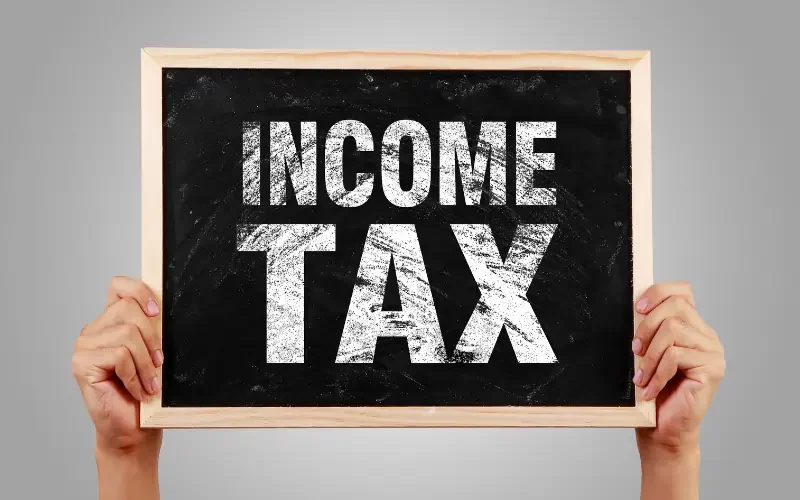
Getting ready for a home sale in Texas can be a very exciting time, even more so when the market’s strong and offers are coming in, rapid-fire. Before celebrating any sale, it’s important to understand the implications for your taxable income. While Texas doesn’t collect a personal income tax, that’s not the end of the story. You may still need to worry about capital gains taxes after the sale of your home.
These taxes are applied to the profit from your home sale, so understanding the specifics can make it easier to plan and even reduce your tax burden. In this guide, we’ll break down how capital gains taxes apply in various situations. We’ll cover what exemptions can help you save money, and how to tackle the whole process with no small degree of confidence. Selling real estate in Texas can be complex, but we’ll help simplify it.
Do You Have To Pay Taxes When You Sell Your House In Texas?
We’ll start with some great news. For those who weren’t already aware, Texas homeowners don’t pay any state income tax on home sale profits. That being said, the Internal Revenue Service still imposes a federal capital gains tax on any homeowner who makes a profit during their home sale.
The amount owed for each home sale, however, depends on several things. The biggest factor is how long you’ve owned the property. But you’ll also need to consider whether or not it’s your primary residence, and how much you’ve invested in the property.
When you sell your house, or any real property, and generate a profit, that profit is a capital gain. Capital gains from the sale of real estate have their own tax rules. They’re typically considered taxable income under federal law, so you’ll usually have to report that gain on your income tax return. The IRS will then determine if it’s subject to capital gains tax.
Keep in mind that these taxes are different from your typical property taxes. But getting behind on either can lead to a lien or the sale of your home.
Is Selling Your House Considered Taxable Income?
Profits from selling your home aren’t treated the same way as your weekly paycheck. Instead, the IRS classifies the property as a capital asset. This means any profit you create from the sale counts as a capital gain. This also means that those capital gains may generate a tax bill, depending on the selling price. Capital gains taxes are based on the difference between the purchase price and the selling price.
But not every gain from the sale is necessarily a taxable gain. The tax code allows homeowners to exclude substantial amounts of value from taxation under certain conditions. In short, the sale of your home can boost your gross income if your gains exceed the exclusion amount.
Understanding Capital Gains Tax On Home Sales
Anytime you sell a property, the profit you make is called a capital gain. Capital gains are taxed differently, depending on how long you’ve owned the home.
If you’ve owned the property for less than a year, the capital gains are treated as typical income. They’re also taxed as such. This means your tax rate depends on your tax bracket, and it could be far more than you expect.
If you’ve owned the property for more than a year, it has now become a long-term gain. As a result, it’s taxed at a lower rate. The capital gains tax rate for long-term gains will fluctuate between 0% and 20%, depending on your filing status.
The $250,000 / $500,000 Home Sale Exclusion Rule
Federal law allows homeowners a massive benefit through the capital gains tax exclusion. This lets you exclude up to $250,000 in profits from your taxable income when selling your home. If married filing jointly, it surges to $500,000. For homeowners in Dallas & Ft Worth, or anywhere else with spiking property values, this helps safeguard tremendous value.
The catch is that you need to meet the ownership and use tests. These just state that you must have lived in the home as your principal residence for 2 of the last 5 years, or longer. The years don’t even need to be consecutive, but they need to be within 5 years before the date of the sale.
Strategies To Reduce Or Avoid Capital Gains Tax In Texas
Even though Texas doesn’t have a state income tax, many homeowners still want to find ways to reduce capital gains tax owed to the federal government. The good news is that several strategies can help you keep more of your profit after the sale of your home.
First, make sure to document all closing costs, selling expenses, and real estate agent commissions. These costs reduce your overall net profit, meaning you’ll have a smaller taxable gain to report. Don’t forget about legal fees, title charges, and other selling costs, which can also be deducted.
If the property was your primary residence, take full advantage of the capital gains tax exclusion that lets you avoid capital gains taxes on up to $250,000 in profit if you’re single or $500,000 if you’re married filing jointly. Meeting the ownership test and use test is the key to qualifying for this rule.
Anyone who owns investment property or business property has another way. This strategy can help avoid capital gains tax or defer taxes through a 1031 exchange. This is an IRS-approved method to sell one property, then reinvest the proceeds into a similar property to avoid paying any immediate taxes on the profits.
Before choosing one strategy over another, it’s always a good idea to speak with a tax advisor. They should be familiar with both federal tax law and taxes relating to real estate in Texas.

Special Circumstances That May Affect Your Tax Liability
In most cases, sellers will follow standard tax rules, but certain situations can change how much tax liability you have. There may also be exemptions that you qualify for.
The IRS has special exceptions for qualified official extended duty members for those in the military or involved in foreign service.
Transfers between spouses or to a former spouse during divorce may get special treatment. Under federal law, these may be able to avoid immediate capital gains taxes.
Not only that, but if you convert a rental property or vacation home into a primary residence, you may even qualify for a partial exclusion. This exclusion amount would be based on how long you lived there.
On the other hand, homeowners who lose money during a sale can’t deduct that loss in most cases. Though if the property was used for business purposes, the losses may be deductible. Each case is unique, so it’s critical to keep clear records of ownership, use, and ongoing expenses.
Reporting Your Home Sale To The IRS
You are expected to report when you sell a home to the IRS. If the sale generated a profit beyond what was allowed, you’ll use a Form 8949 and Schedule D to calculate capital gains tax. It will also help you determine how much of your profit is taxable.
If your home qualifies for the capital gains tax exclusion, you might not even need to report the sale. However, if the sale was of an investment property, rental property, or a second home, the transaction must be reported. Don’t forget to include depreciation deductions if you claimed them previously while renting or using the property for business reasons.
The IRS also requires you to list the date of the sale, the purchase price, and the final selling price to determine your gross income from the transaction. Keeping organized records of closing costs, legal fees, and other selling expenses can help you accurately report the correct figures and minimize your tax bill.
Selling Quickly To Avoid Tax Complications
For many Texas homeowners, selling to a cash buyer can cut down on paperwork and make everything simpler. Working with a company like Four 19 Properties helps you get a fair offer and a fast closing.
Cash buyers will typically handle all of the real estate paperwork. This gives you a clean, straightforward transaction that reduces the chances of missing timing or filing requirements. If you’re trying to sell an investment property before the end of the tax year, this can be a critical selling point.
It can also help you minimize your exposure to new tax rules. You’ll know your entire gain, capital asset, and net profit right away. This means you can calculate your gain from the sale sooner and plan any strategies to offset gains.
Conclusion
Knowing how income tax and capital gains tax apply to the sale of your home in Texas is central to avoiding tax surprises. Even though we don’t have to worry about state income tax, we still have to pay Uncle Sam. If you’re looking for a sale process that makes things hassle-free and lightning-fast, partnering with Four 19 Properties could be perfect. We’re a local cash buyer committed to making your home sale simple. Reach out for a fair cash offer today.
